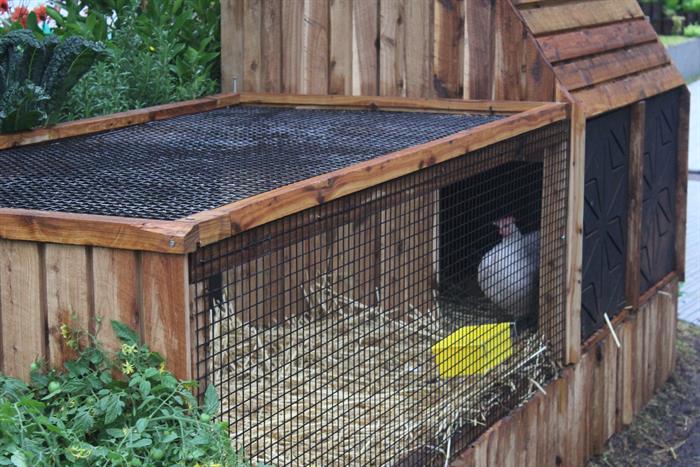
Chickens are generally hardy animals and can adapt to a range of environments, however they still require special care, like most animals, in the colder conditions. Egg production will usually slow during the winter months, however there are some things you can do to try to help your chickens continue to lay during this time.
Winters in some countries are not as harsh as other parts of the world, but poultry will be affected anywhere that temperatures drop, and even more if you experience frost, sleet and even snow in areas. Chickens will prepare themselves for winter by cutting back on egg production, moulting (getting all new feathers) and increasing their feed consumption. They are a flock animal and will naturally huddle together when they are cold, however they still may need some help staying warm.
In some parts of the world people will go as far as to knit little jumpers and sweaters for their chickens during moult and colder winter months. Don’t fret it you are not much of a knitter, because there are still practical things that you may wish to do to ensure the welfare of your birds over winter.
Firstly, check your birds regularly. You can prevent losing birds by checking them and their environment frequently.
A heat lamp or heater is a good option to give them a little extra help keeping warm. However they do have their downside as they can use a fair amount of electricity and can be a fire hazard- depending on the type of heater you have. Be sure to check that the heater isn’t too close to the chickens litter, bedding or any other flammable materials. Some people don’t like to use heaters as chickens can be sensitive to the sudden change in temperature when they go outside into the cold. It can be quite harmful for chickens experience drastic changes in temperatures.
When the temperatures drop and people insulate the chicken coop too much they limit air circulation. Do keep in mind that their coops do still need ventilation, many people will insulate a chicken coop completely forgetting to allow for some ventilation. This will increase humidity inside the coop and can cause frostbite. It will also allow for a build-up of ammonia from the chickens droppings - this is unhealthy for the chickens and can damage their lungs. Some choose to have the coop screened in such a way that allows for vents to be open in the day and closed or partially closed at night.